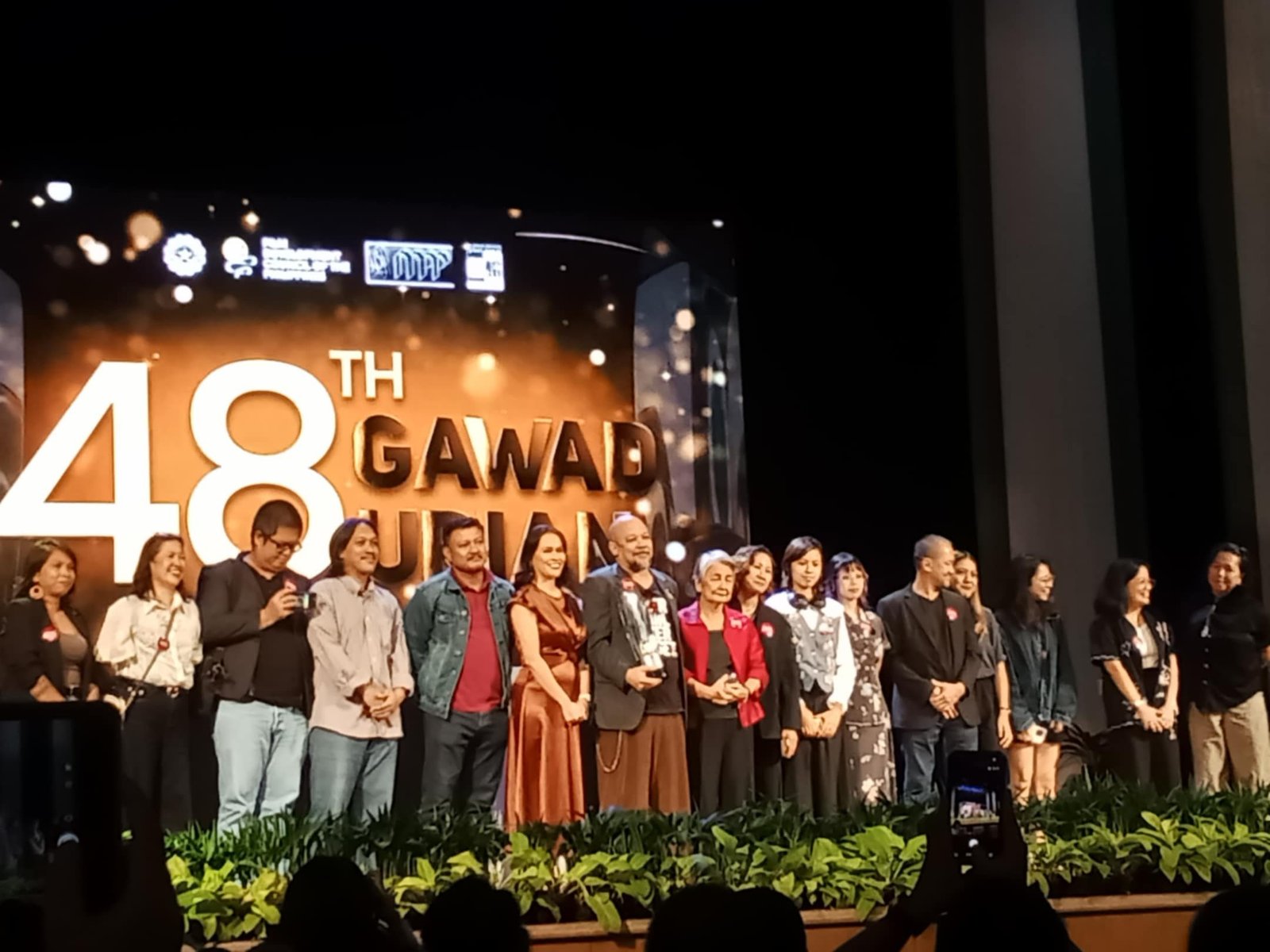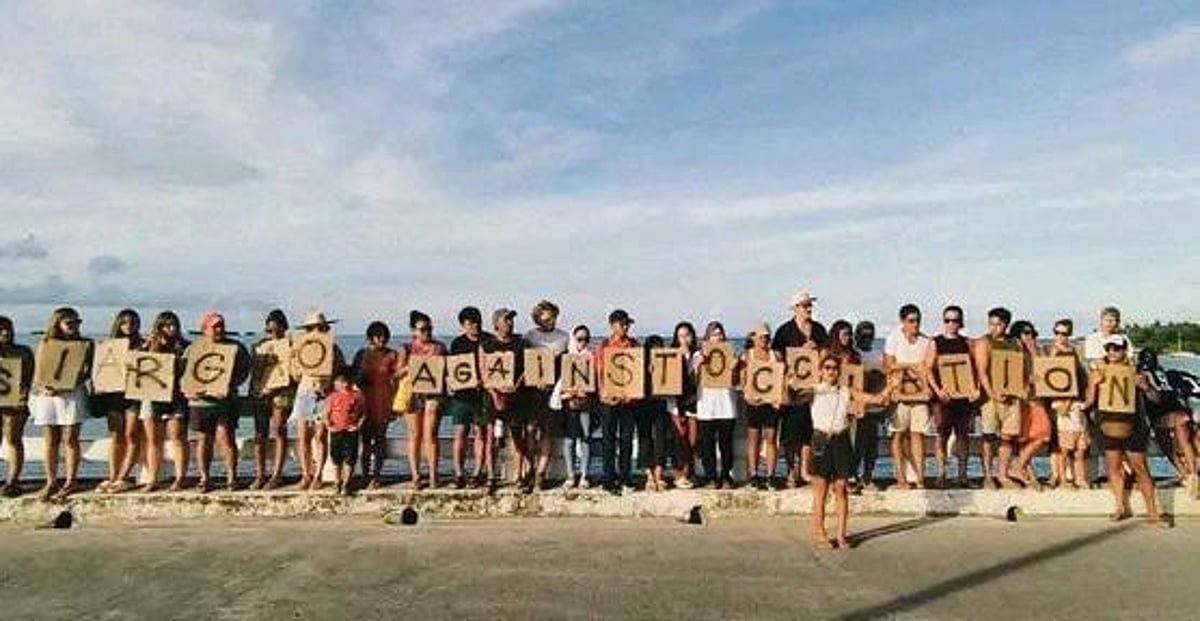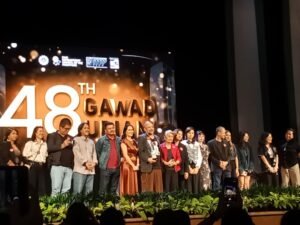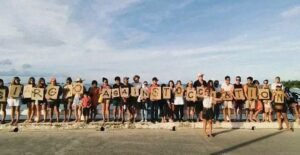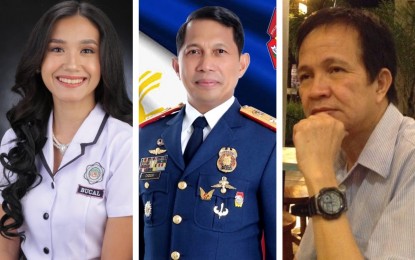
Dylan Zinead Xiv Tanji, Police Regional Office 5 (Bicol) Director Brig. Gen. Andre Dizon, and Bicolano historian Danilo Madrid Gerona (Contributed photos)
DARAGA, Albay – For renowned historian Danilo Madrid Gerona, June 12, which commemorates the country’s declaration of independence from Spain in 1898, will always have a special place in the hearts of the Bicolanos.
This, despite the misconception that the region was indifferent to the nationalist sentiment of the time and therefore not part of the struggle for sovereignty under the colonial regime.
“Even in the eight rays of the sun on the Philippine flag that Aguinaldo presented, the Bicol Region was not included. The rays represent the first eight provinces that led the uprising against Spanish rule,” Gerona said.
He said the region’s socio-economic status could partly be the reason why Bicol got wind of the clamor for independence at a later stage.
“From 1865 to 1925, the Bicol region, especially Albay, was one of the richest provinces in the Philippines due to the thriving abaca industry,” the historian said. “This might be the reason why they were not very inclined to revolt against the status quo.”
But while public sentiment during that time may not recognize the region as having played a major role in the initial revolutionary movement, he said the Bicolanos’ fervor for independence cannot be denied.
Gerona recounted that in Camarines Norte, for instance, there was a revolutionary movement in 1898, led by educated individuals and Mason members connected to Manila’s revolutionary circles.
He further added that when the Philippine revolution against Spain broke out in 1898, with the Southern Tagalog region winning some battles, the region’s forefathers also actively fought for the country.
This clamor for sovereignty was even carried out in the Filipino-American War a year later in 1899.
Gen. Ludovico Arejola of Naga city, for example, was a notable figure known for organizing a large guerilla army that fought the Americans.
The Bicolano historian also added that the last general to surrender to the Americans was Gen. Simeon Ola, a native of Albay province.
He added that this just goes to show that the Bicolanos were very much a part of the national struggle for independence despite claims to the contrary.
The many faces of freedom
For Police Regional Office (PRO) 5 (Bicol) Director Brig. Gen. Andre Dizon, the spirit of freedom is still very much alive in the country.
He credits Bicolano leaders Elias Angeles and Felix Plazo, who were notable figures in the revolutionary uprisings in Camarines Sur, as well as Gen. Simeon Ola from Albay, for their legacies of heroism that continue to resonate today.
But while it is easy to simply look back at a country’s storied past when looking for heroes, Dylan Zinead Xiv Tanji, 22, said freedom is built and sustained by ordinary people.
As the internal assistant youth consultant of the Youth Ambassadors of Albay, she said it is important to recognize the laborers, activists, students, farmers, teachers, and youth leaders who uphold the values of independence every day.
“These are the people who remind us that patriotism isn’t just found in history books – it’s in the streets, in the classrooms, and in every act of courage and compassion done in the name of our beloved country and its people,” she said.
But in a democratic country where it is easy to take this gift for granted, Gerona said it is important for citizens to be grateful and take pride in the freedom that the Filipinos enjoy today.
And Tanji, being the dynamic youth leader that she is, could not agree more.
“We have to remember that this freedom wasn’t handed to us easily; it was fought for with blood, courage, and unity,” she said.
The true measure of independence
For Gerona, true independence goes beyond freedom from external control, as in the case of a country being liberated from the shackles of colonial rule.
In fact, Gerona said the term “independence,” translated as “kalayaan” in Tagalog and “katalingkasan” in Bikol, is a modern construction associated with ideals of nationalism.
“Surprisingly, upon checking the dictionary written in the 1600s, for example by Padre Pedro de San Buenaventura, a Franciscan who wrote the first dictionary in Tagalog, and even Marcos Delos Boa, who was the first to work on a dictionary in Bikol in 1613, what is striking is that the term ‘kalayaan’ or ‘laya’ does not exist,” he said.
The historian explained that the Spanish dictionary uses the term “libertad” or “libertar” to refer to a slave being afforded freedom.
It was only in the 19th century, however, that it acquired a political undertone, with the term “liberty” being associated with freedom or independence.
Interestingly, he also said that in the colonial years, the masses had a different conception of what freedom looked like compared to the Filipino elites.
“For them, freedom meant that Filipinos would one day enjoy complete liberty – and complete freedom from poverty. That’s what they believed freedom meant: that Filipinos would have a kind of paradise here on earth,” he said.
“That was the aspiration of ordinary Filipinos. Freedom was not just the absence of government control over Filipinos, but that Filipinos could live a life without control or hardship.”
Gerona said this starkly contrasts with the notion of the Filipino elite, as well as the educated, like that of Jose Rizal, who only conceived of independence as political freedom, with Spain relinquishing its control over the Philippines.
In making sense of the term in contemporary times, Tanji said one of the hallmarks of a country that enjoys freedom is when its people are not afraid to speak, question, and live fully.
“Freedom isn’t just about having our own flag or government; it’s about being free from fear, from hunger, from corruption, and from injustice.
“It is having the space to think, speak, move, and dream without fear; and most importantly, without being silenced. It’s the ability to stand for what you believe in, to live with dignity, and to fight for what’s right even if it’s uncomfortable,” she said.
Honoring the past
As the country marked the 127th anniversary of the proclamation of Philippine independence on June 12, Gerona said it is important for Filipinos to have a collective memory of the past.
“Celebrating Independence Day is always a wake-up call to go back to our past. This is our best way to express our gratitude to our ancestors who fought for us so we can enjoy what we have today,” he added. (PNA)
